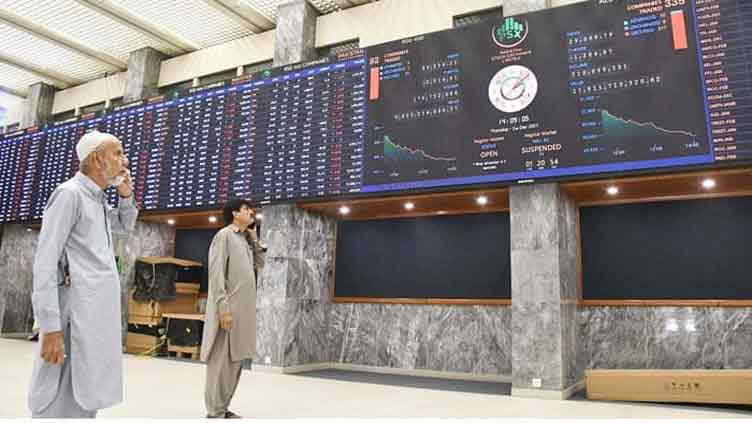Pakistan stocks set a new high, but later opt for market correction

Business
Recent surge is product of rate cut prospects, progress in IMF talks
- Clarity about the planned privatisation programme is also contributing to the trend
KARACHI (Web Desk) – During a volatile session on Wednesday, the KSE-100 Index first shattered the 75,000 ceiling and later briefly dipped into red zone as market opted for overall correction after the latest series of gains – a product of the investors buoyant by rate cut prospects amid the progress being made in the talks for another IMF programme.
At point during early trading, the Pakistan Stock Exchange saw its benchmark index touching a high 75,115.32, thus shattering the 75,000 ceiling, which later slumped to 74,440.87 against the previous closing of 74,531.19.
By the time trading was closed, the benchmark index settled at 74,663.98 with a net gain of 132.79 points, or 0.18 per cent, meaning that
It means the Pakistan Stock Exchange on Wednesday was up for the fourth consecutive session after the KSE-100 Index closed at 72,658.05 on May 9.
Another factor contributing to this trend is the planned privatisation of state owned enterprises (SOEs) as Prime Minister Shehbaz Sharif a day earlier made it clear that all of these entities – barring the strategic ones – would be disposed of no matter they are profitable or suffering losses.
On the other hand, the Citibank predicted that the State Bank of Pakistan (SBP) would start interest rate cuts from next month at its Monetary Policy Committee scheduled for June 10 – a much-desired move after the annual inflation in April dropped to 17.6pc, as the downward movement in consumer price index (CPI) continued for the fourth consecutive month.
This forecast is in line with the statement made by Finance Minister Muhammad Aurangzeb who had earlier expressed his confidence that the rate cuts would be introduced soon, which, he added, were to boost the private sector.
At the same time, the Citibank in its latest report also said that the size of a new IMF programme sought by Pakistan would be $8 billion covering a period of four years.
The forecast shows that Islamabad is set to get what it wants – a bigger and longer package to bring stability to a fragile economy and ensure introduction of long-term policies. It was Aurangzeb who had first expressed the desire for such a deal.
As far as foreign investment is concerned, it is mentioned in the report that a decision about the Saudi investment would be announced soon.
Earlier, a delegation of investors and businessmen from Saudi Arabia visited Pakistan, expressing their interest in a diverse set of fields, ranging from energy and minerals to human resources and agriculture.
Now it is expected that Crown Prince Mohammed bin Salman will visit in the coming weeks and the two countries are in touch to final the dates for this purpose.


